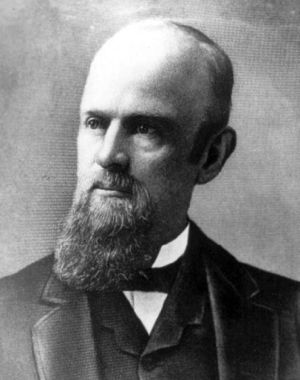Thomas Hillman: Difference between revisions
mNo edit summary |
No edit summary |
||
| (One intermediate revision by the same user not shown) | |||
| Line 1: | Line 1: | ||
[[File:Thomas Hillman.jpg|right|thumb|Thomas Hillman]] | |||
'''Thomas Tennessee Hillman''' (born [[February 2]], [[1844]]; died August [[1905]]) was prominent as a citizen and businessman in Birmingham's iron industry. | '''Thomas Tennessee Hillman''' (born [[February 2]], [[1844]]; died August [[1905]]) was prominent as a citizen and businessman in Birmingham's iron industry. | ||
Early in [[1879]] he formed a partnership with [[ | Early in [[1879]] he formed a partnership with [[Henry F. DeBardeleben]] to build a blast furnace in Birmingham. He named Birmingham's first furnace "Alice" after his partner's daughter. | ||
The output from [[ | The output from [[Alice Furnace]] set new records for Alabama iron production. Under Hillman's expert guidance, the plant became a celebrated landmark in the city's development of an iron industry. Hillman later became a generous benefactor to the city's First Methodist Church and its first hospital. [[Hillman Hospital]] at [[UAB]] was named for him. | ||
He was a prominent member of the Methodist Church in Nashville while he resided there, and in Birmingham he was devoted to the interests of the church there. He died on [[August 3]], [[1905]] and was buried at [[Mt | He was a prominent member of the Methodist Church in Nashville while he resided there, and in Birmingham he was devoted to the interests of the church there. He died on [[August 3]], [[1905]] and was buried at [[Mt Olivet Cemetery]] in [[Nashville]]. | ||
==References== | ==References== | ||
* Ragan, Larry (1992) ''Ironmaster and Benefactor.'' True Tales of Birmingham | * Ragan, Larry (1992) ''Ironmaster and Benefactor.'' True Tales of Birmingham {{BN}}, reprinted in {{Ragan-2005}}, p. 15 | ||
* "Thomas Tennessee Hillman" obituary Aug. 3, 1905) ''The Nashville Banner Newspaper'' | * "Thomas Tennessee Hillman" obituary Aug. 3, 1905) ''The Nashville Banner Newspaper'' | ||
Latest revision as of 10:56, 8 January 2022
Thomas Tennessee Hillman (born February 2, 1844; died August 1905) was prominent as a citizen and businessman in Birmingham's iron industry.
Early in 1879 he formed a partnership with Henry F. DeBardeleben to build a blast furnace in Birmingham. He named Birmingham's first furnace "Alice" after his partner's daughter.
The output from Alice Furnace set new records for Alabama iron production. Under Hillman's expert guidance, the plant became a celebrated landmark in the city's development of an iron industry. Hillman later became a generous benefactor to the city's First Methodist Church and its first hospital. Hillman Hospital at UAB was named for him.
He was a prominent member of the Methodist Church in Nashville while he resided there, and in Birmingham he was devoted to the interests of the church there. He died on August 3, 1905 and was buried at Mt Olivet Cemetery in Nashville.
References
- Ragan, Larry (1992) Ironmaster and Benefactor. True Tales of Birmingham The Birmingham News, reprinted in Ragan, Larry (2005) True Tales of Birmingham. Birmingham Historical Society ISBN 0943994195, p. 15
- "Thomas Tennessee Hillman" obituary Aug. 3, 1905) The Nashville Banner Newspaper
External links
- Thomas Tennessee Hillman at Findagrave.com
